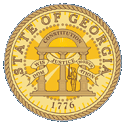Dan D. Goldhaber and Dominic J. Brewer. “Evaluating the Effect of Teacher Degree Level on Educational Performance.” Developments in School Finance, 1996.
Thomas J. Kane, Jonah E. Rockoff, and Douglas O. Staiger, “What Does Certification Tell Us About Teacher Effectiveness? Evidence from New York City” (Cambridge: National Bureau of Economic Research, 2006)
Daniel Aaronson, Lisa Barrow, and William Sander, “Teachers and Student Achievement in the Chicago Public High Schools.” Working Paper WP-02-28 (Federal Reserve Bank of Chicago, 2002);
Eric A. Hanushek, John F. Kain, and Steven G. Rivkin, “Teachers, Schools, and Academic Achievement.” Working Paper 6691 (National Bureau of Economic Research, 1998);
National Council on Teacher Quality, “Increasing the Odds: How Good Policies Can Yield Better Teachers” (2005);
REL, “Research on the efficacy of master’s degrees for teachers” (2014).
Early Childhood Education Subcommittee Research References
Barnett, W. S. (2008). Minimum requirements for preschool teacher educational qualifications. In E. F. Zigler, W. S. Gilliam, & W. S. Barnett (Eds.), The pre-K debates: Current controversies and issues (pp. 48-54). Baltimore, MD: Paul H. Brooks Publishing Co.
Center on the Developing Child at Harvard University. (2007). A science-based framework for early childhood policy: Using evidence to improve outcomes in learning, behavior, and health for vulnerable children.
Whitebook, M. (2014). Building a skilled teacher workforce: Shared and divergent challenges in early care and education and in grades K-12. Prepared for the Bill & Melinda Gates Foundation. Berkeley, CA: Center for the Study of Child Care Employment.
Center on the Developing Child at Harvard University. (2007). A science-based framework for early childhood policy: Using evidence to improve outcomes in learning, behavior, and health for vulnerable children.
Mosteller, F. (1995). The Tennessee study of class size in the early school grades. The Future of Children: Critical Issues for Children and Youth. 5(2), 113-127.
Peisner‐Feinberg, E. S., Schaaf, J. M., & LaForett, D. R. (2013). Children’s growth and classroom experiences in Georgia’s Pre‐K Program: Findings from the 2011–2012 evaluation study. Chapel Hill: The University of North Carolina, FPG Child Development Institute.
Schanzenbach, D. W. (2014). Does class size matter? Boulder, CO: National Education Policy Center.
Barnett, W. S. (2008). Minimum requirements for preschool teacher educational qualifications. In E. F. Zigler, W. S. Gilliam, & W. S. Barnett (Eds.), The pre-K debates: Current controversies and issues (pp. 48-54). Baltimore, MD: Paul H. Brooks Publishing Co.
Campbell, N. D., Entmacher, J., Blank, H., and Matsui, A. K. (2015). Extra credit: How Louisiana is improving child care. Washington, DC: National Women’s Law Center.
Center on the Developing Child at Harvard University. (2007). A science-based framework for early childhood policy: Using evidence to improve outcomes in learning, behavior, and health for vulnerable children.
Institute of Medicine (IOM) and National Research Council (NRC). (2015). Transforming the workforce for children birth through age 8: A unifying foundation. Washington, DC: The National Academies Press.
Peisner-Feinberg, E. S., & Burchinal, M. R. (1997). Relations between preschool children’s child-care experiences and concurrent development: The cost, quality, and outcomes study. Merrill-Palmer Quarterly, 43(3), 451-477.
Reynolds, A. J., Temple, J. A., White, B. A. B., Ou, S.-R., & Robertson, D. L. (2011). Age 26 cost-benefit analysis of the Child-Parent Center Early Education Program. Child Development, 82, 379–404.
